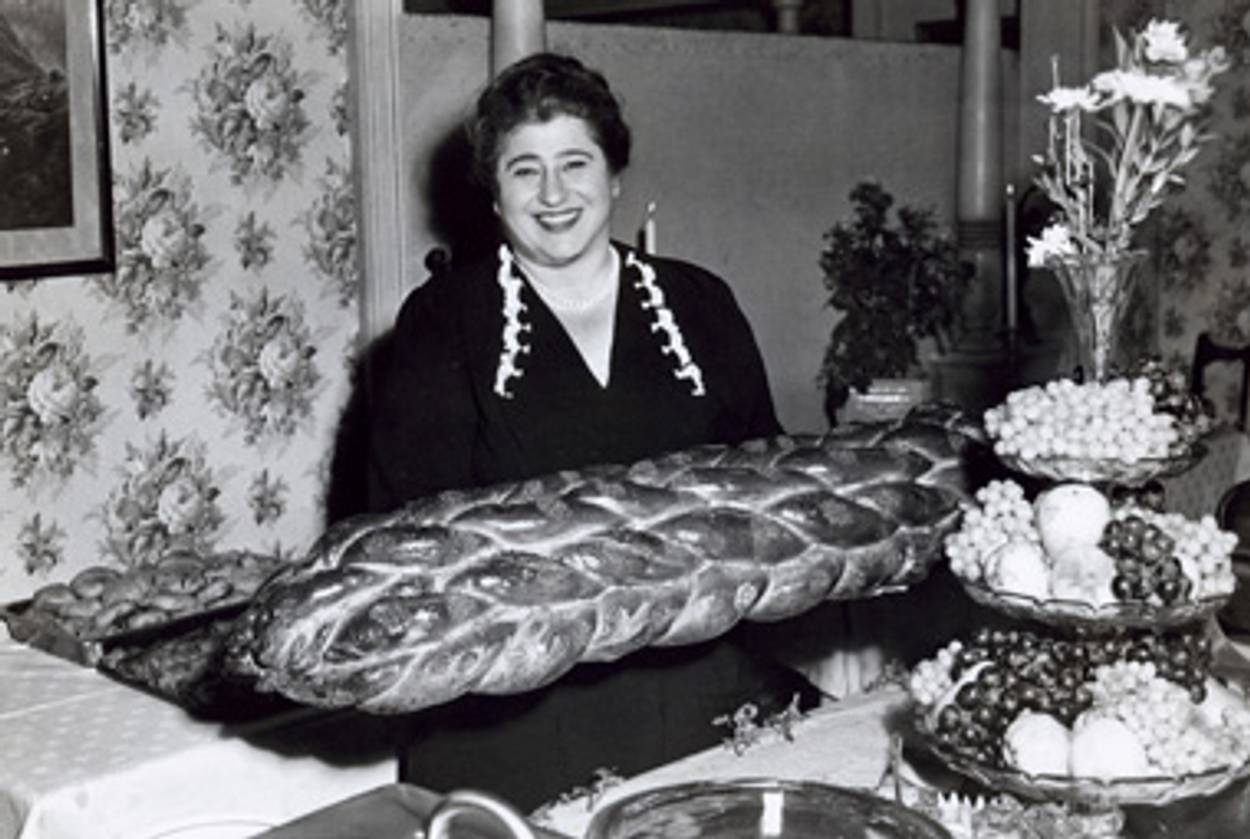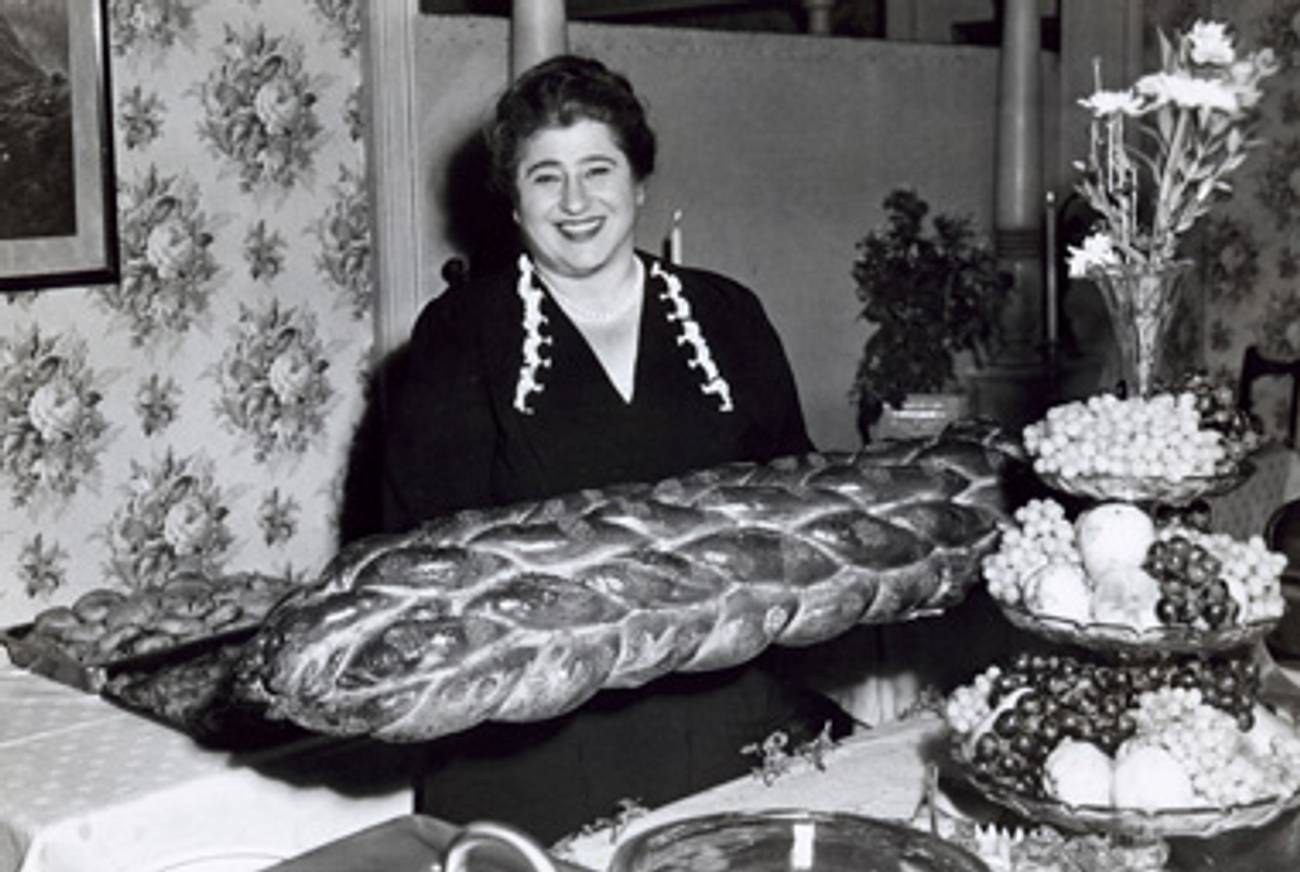Sitmom
A documentary examines the life of Gertrude Berg, the driving force behind TV’s The Goldbergs




Before there was Lucille Ball, there was Gertrude Berg. On the same network, in fact: Berg’s show, The Goldbergs, aired in primetime on CBS-TV when Ball’s antics were still confined to the network’s radio station. But, while Lucy is constantly in reruns, Berg—who, according to Aviva Kempner’s new documentary Yoo Hoo, Mrs. Goldberg, virtually invented the sitcom—is nowhere to be found.
“My whole m.o. is making films about under-known Jewish heroes,” Kempner said in an interview with Tablet. “In Partisans of Vilna, it’s about the Jews who fought back against the Nazis. In Hank Greenberg, it’s sort of the counterexample to the nebbishy Jewish hero.”
Berg is certainly little-known to all but the oldest generation of today’s television viewers, thanks to her absence from the airwaves since the early 1960s. But Kempner also makes a convincing argument that Berg was a kind of hero—a hilarious, empathic writer, actress, and businesswoman who elevated the already-maligned figure of the Jewish mother to the bustling, beaming center of her own world.
Tilly Edelstein, the future Gertrude Berg, was born in 1898 on New York City’s Lower East Side. In the summers, the Edelsteins ran Fleischmann’s, a Catskills resort , where young Tilly’s tasks included putting on plays with the guests on rainy days. She married at 18 and moved for a time to Louisiana, where her engineer husband was helping to invent instant coffee, but by 1929 she had launched her own career with The Rise of the Goldbergs, a series she penned for New York radio about a Jewish family not unlike her own. In a mildly Oedipal gesture, the father character shared a name with Berg’s own father, Jacob, while Berg voiced Molly, the family matriarch.
The Goldbergs (“The Rise of” was quickly dropped) became the No. 2 show on radio after Amos ‘n’ Andy—but while the latter is famous for its wild caricatures of blacks, who were voiced on the show by white actors, the former realistically portrayed urban Jewish life. Every morning, Kempner says, Berg went down to the Lower East Side with a notepad to gather material. In 1933, she conducted an entire seder on the air.
In 1949, Berg adapted her show for television, creating the sitcom that brought her to the peak of her fame. Despite the show’s obscurity today, the image of aproned Molly Goldberg kibitzing in the window—and, often as not, trying to sell the television audience vitamins or knives—has become iconic.
“The apartment with people constantly coming in and out, the product placement, are industry standards now,” Kempner said. She pointed to Seinfeld and Friends as shows that employ the former; as for the latter, Berg wasn’t just marketing instant coffee, but also her own lines of dresses, toys, comic books, and cookbooks.
“She had a media empire,” screenwriter Margaret Nagle says in the film. “She was the Oprah of her day.”
The show lasted until 1955, when, according to Kempner, two things did it in: suburbanization, and the blacklist. The show’s final season took place in the suburbs—the Goldbergs had risen indeed, but in the process, lost the trappings of tenement life that made the show what it was. More tragically, Philip Loeb, who played Jacob Goldberg, was blacklisted. Berg fought back, but ultimately the show was dropped by its sponsor and forced to switch networks; it never recovered from the loss of both Loeb and its prime slot. Loeb committed suicide; Berg continued feverishly working the spotlight until her death in 1966, but her career never completely recovered.
The main reason The Goldbergs isn’t on the air today, though, is frustratingly banal: like other very early TV shows, Kempner said, it was never syndicated.
“A couple years back I was at a party, and there was ‘The Nanny’!” Kempner recalled. “I told her I was making a documentary about Gertrude Berg. And she says to me, ‘Who’s that?’”
But long before Fran Drescher, there was the unsinkable Molly Goldberg, hollering sweetly out her tenement window to the neighbors.
Marissa Brostoff, a doctoral student in English at the CUNY Graduate Center, is a former staff writer at Tablet and the Forward.
Ari M. Brostoff is Culture Editor at Jewish Currents.